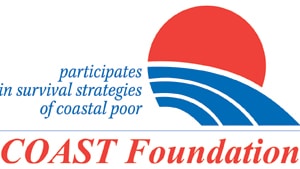Istanbul, Turkey 24 May 2016. At the World Humanitarian Summit where governments, international organizations and civil society stakeholders came together to improve how the world prepares and reacts to humanitarian crises, Germany announced the launch of the new Platform on Disaster Displacement.
The launch of the Platform on Disaster Displacement and side event brought together key stakeholders from the Americas, Africa, Asia and Europe to discuss gaps and effective practices to make the humanitarian system better prepared to address disaster displacement. On the occasion of the launch of the Platform, the Foreign Ministers of Switzerland and Germany, the Foreign Secretary of Bangladesh as well as the Assistant High Commissioner for Protection at the UNHCR and the Director General of the International Organization for Migration (IOM) reaffirmed their commitment to better protect and assist disaster displaced children, women and men.
The objective of the Platform on Disaster Displacement is to follow-up on the Swiss and Norwegian led Nansen Initiative and to implement the recommendations of the Protection Agenda, a toolbox to better prepare for displacement and to respond to situations when people are forced to find refuge, within their own country or across a border. The new Platform will build partnerships between policymakers, practitioners and researchers and constitute a multi-stakeholder forum for dialogue, information sharing as well as policy and normative development.
“We have to change the way we are planning and delivering humanitarian assistance. Our understanding of humanitarian assistance has become broader, moving from crisis management towards risk management. One reason for that is climate change and the danger it involves”, said the German Federal Foreign Minister, Dr. Frank-Walter Steinmeier, at the high-level event.
“People are at the center of the global climate change crisis. And in the Pacific, it is the communities who live climate change day in and day out. They don’t need to learn about climate change, they already know the realities“, explained Ms Julia Edwards from the Pacific Conference of Churches.
“Disaster displacement is definitely a complex phenomenon. In terms of drivers, in terms of consequences and in terms of the suffering of the people. We now have a Protection Agenda, and as Vice-Chair of the Platform on Disaster Displacement, we are looking forward to the leadership of Germany to bring change to the lives of people”, insisted the Foreign Secretary of Bangladesh, Mr. Md. Shahidul Haque.
“As outgoing Co-Chair of the Nansen Initiative, Switzerland will remain a committed actor in this continuous endeavour. We are confident that under the leadership of Germany and Bangladesh, this next phase will allow for enhanced action, coordination and cooperation, based on the Protection Agenda, in order to effectively address disaster-induced displacement”, declared the Swiss Federal Councillor and Head of the Federal Department of Foreign Affairs, Mr. Didier Burkhalter.
The Word Humanitarian Summit provides a historic opportunity to better protect and assist disaster displaced persons and to take forward commitments to action and support the implementation of the UN Secretary-General’s Agenda for Humanity. Failing to use this opportunity discounts the needs of millions of people affected by disasters and neglects an essential challenge of our time.
“As we build on the Protection Agenda in the work of the Platform for Disaster Displacement, I assure the world that we in Fiji will welcome the people of Kiribati and Tuvalu as Pacific brothers and sisters with open arms. But we will need the assistance of the global community to do so. And the search for a proper framework begins now”, concluded the Fiji Prime Minister Hon. Josaia Voreqe Bainimarama.
Please Download English Press





